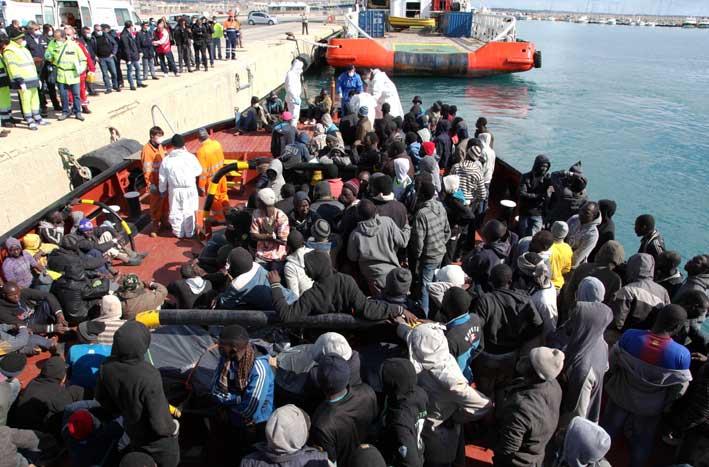Burden sharing in the Mediterranean has ended with Malta taking the dead immigrants and Italy taking the living ones.
This is what we saw happening last week and it is also the opinion of an Italian lawyer who has been living in Malta for the past years.
Avvocato Massimo Malvestio was speaking in an interview he gave to Renzo Mazzaro which appeared on yesterday's edition of il Mattino di Padova.
The Italian lawyer defended Malta's stance in the immigration issue: Malta is only 400 sq km and has more than 400,000 residents, a population density which makes the people anxious.
"Malta just cannot take in thousands of immigrants. Here (the people of Malta) live from tourism and they cannot accept an uncontrolled influx with public order rendered inoperable," he said.
It is not true, he said, that the Maltese systematically push back the immigrants. He observed how there is an open centre at Marsa, a rather degraded area of Malta, and the fact that there is an open centre has contributed to the degradation, pushing property prices down.

"The Catholic culture is strong in Malta: there is a bishop who is very present, he comes from Rome, from the [Congregation] of Faith, who speaks many languages very well," he observed. "But in Malta there isn't the politically correct approach one finds in Italy - here they practice responsible solidarity. It is too small a country to take in a great influx.
"Instead, the Maltese send the asylum seekers to Italy. When a boat with 120 migrants wanted to enter the harbour, a motorboat came out, with a cable. Everyone thought the cable would drag the boat into the harbour, but instead it dragged it to Sicily.
"This happened when Enrico Letta was prime minister of Italy. Prime Minister Joseph Muscat thanked the Italian government. The Maltese have accepted the dead, but not the living. Malta is too small to take in thousands of persons. But if someone is in danger at sea, they pick him up: it is not true they push him back in the water. Then they try not to keep him: that is true. They have a pragmatic approach, but not an inhuman one."
He cites the example of the Migrant Offshore Aid Station an American couple of Italian origin, the Catambrones, who rigged a ship with drones purchased in the US, put together a crew and recruited the former head of the Maltese Armed Forces to try and pick up people from the sea.
"Certainly, they are spending a lot of money. In Malta, public opinion is not like that in Italy. They try to comply with EU requests. There is consensus about responding to humanitarian needs, but then these duties last two days and not two years as in Italy. They neither have the space nor the money to cope with such an influx.
"Malta relies very much on an intervention in Libya. Joseph Muscat says that if we do not go into Libya, this problem will never be resolved. The Maltese [secret?] services are very present in Libya and all the rich Libyans are in Malta. Whoever wants to live a peaceful life comes here and does not budge from here. The Libyan telecom company, for instance, has come here. But one must observe 'their' rules: otherwise they kick you out in five minutes. In Malta everything that happens gets known immediately. The Maltese have very good information about Libya which can be very useful to the EU."